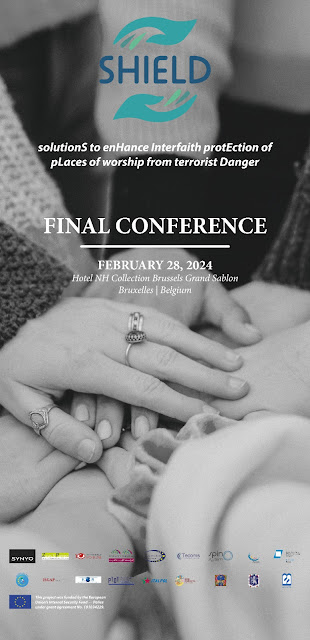Lavoro di gruppo degli studenti di psicologia dell emergenza dell'Università Cattolica di Milano.
Guerra Psicologica: Il Potere Nascosto delle Parole
Lavoro di gruppo degli studenti di psicologia dell emergenza dell'Università Cattolica di Milano.
Guerra Psicologica: Il Potere Nascosto delle Parole
L'evoluzione della violenza dalle guerre napoleoniche al terrorismo contemporaneo riflette forse una 'democratizzazione della violenza' politica (se la guerra è politica con altri mezzi, allora la politica democratica evolve in guerra democratica), in cui è riduttivo focalizzarsi solo su attori non statali (i rivoluzionali o i terroristi), nuove tecnologie, fine della guerra come istituzione, come fanno René Girard, Carl von Clausewitz, e anche Carl Schmitt. L'evoluzione dei conflitti comporta infatti che ogni cittadino possa diventare perpetratore o vittima di atti di violenza politica più o meno legittimi. Da porre in evidenza è come la vittimologia (Jan van Dijk, 2009) abbia confermato la dimensione sacra della violenza e il ruolo del Cristianesimo presenti nel paradigma di Girard. Ma negli ultimi decenni il ruolo della vittima è stato sottoposta a critica dalle stesse vittime (del terrorismo) che hanno reclamato il diritto di sottrarsi dal ruolo religioso del capro espiatorio tra i due attori in conflitto, tipicamente stato e attore non statale, o di essere politicamente strumentalizzati dallo stato per le sue politiche di antiterrorismo o di memorializzazione dei conflitti con il terrorismo. Esemplare è il ruolo del comitato dei familiari dei rapiti del 7 ottobre, che nel contesto di un conflitto che sembra spingere all'estremo l'escalation bellica della risposta israeliana all'aggressione di Hamas, si pongono come attori politici terzi e con un'autonoma iniziativa diplomatica finalizzata a 'risparmiare sangue' (concetto di Anna Bravo, 2013).Così, la vittima che si libera dall’etichetta di vittima, non è solo quella alle prese dal dilemma tra farsi milite che si vendica o buon cristiano che deve perdonare il perpetratore. Proprio come suggerisce Girard, in Achever Clausewitz, si deve stare nel conflitto svolgendo parimenti un ruolo di riconciliazione. Un ruolo che in ultima analisi ricorda a tutti l'umanità del nemico. Le vittime sono forse quelle che meglio possono interpretare tale ruolo da antieroi titolati a richiedere di risparmiare sangue?
The “Centro Studi René Girard politico” organizes the conference: Reading Achever Clausewitz: war and the end of history in René Girard.The conference will be held at the Department of Political Science, Law and International Studies of the University of Padua on 4th and 5th September 2024.
The aim of the event is to bring together scholars from different backgrounds, such as experts on René Girard (including Maria Stella Barberi, Giuseppe Fornari e Pierpaolo Antonello), as well as passionate readers who are new to the Girardian paradigm, and to encourage dialogue between them, in an interdisciplinary perspective.To this end, the Centro Studi is calling on scholars, researchers and practitioners who are interested in presenting a fifteen-minute talk at the conference.
We welcome original contributions, in Italian or English, that deal with the content of Achever Clausewitz. If you are interested, please send a short abstract of no more than one thousand words to the following email address: marta.ferronato@unipd.it by 28th July 2024.
Admission will be confirmed by 5th August 2024.Selected applicants agree to speak either in person or remotely during the conference.
This marks the conclusion of the Radicalisation Awareness Network - RAN ’ the European network for prevention practices established in 2011 by the DG Home of the European Commission. Thus, it is time to evaluate this experience, in particular in Italy, and open up a discussion on the future consolidation of policies and practices aimed at preventing and countering violent extremism and terrorism.
Nuova collaborazione con OIKOS ETS di Udine nel progetto regionale sulla prevenzione della radicalizzazione indirizzato ad insegnanti e giornalisti. Si veda la pagina https://www.oikosets.net/pratica-logica/
Un nuova sfida in ambito formativo... nel quadro della convenzione di terza missione della Facoltà di Scienze Politiche di Padova e l'Associazione Leon Battista Alberti e nel quadro delle attività del "Centro Studi René Girard politico".
Di fronte a guerre che coinvolgono sempre più direttamente l’Europa e l’Italia, siamo sopraffatti da un senso d’impotenza che ci rende passivi fruitori di un mare d’informazioni.
Un mare nel quale l’unica libertà concessa sembrerebbe essere quella di poter scegliere quale propaganda seguire, per poterci ritrovare - in una “bolla” o “camera dell’eco” (echo-chambers) - insieme ad altri, dalla “parte giusta”.
Chi voglia sottrarsi a queste bolle, cariche di pregiudizi di conferma, si pone il problema di come approcciarsi in maniera vigile e consapevole ai mezzi e alle fonti di informazione e di analisi.
Esattamente a queste persone - psicologi dell’emergenza, operatori sociali, umanitari e di pace, studenti, ma anche a chiunque sia interessato - si rivolge l’incontro on-line:
”Orientarsi. La guerra, l’informazione, gli inganni.”
il 27 Marzo alle ore 21, on line su Zoom al seguente link:
https://unipd.zoom.us/j/87366408059?pwd=SzlvYlJTVU1IRXA2OWhMR2x3VGdxdz09
Intorno alle teorie del complotto, loro natura, utilizzo e fine. Se ne discute alla libreria torinese Il Ponte sulla Dora con l'autore, Tobia Savoca, e con Enrico Manera - giovedì 7 Marzo ore 18.30.
 In response to terrorist attacks that occurred in Europe in the last decade, the European Commission has funded a wide range of projects that develop effective strategies to protect public spaces. Places of worship, such as mosques, churches and synagogues, are hereby of particular importance, as they are considered sensitive targets due to their high symbolic value of civil coexistence and social and cultural cohesion.
In response to terrorist attacks that occurred in Europe in the last decade, the European Commission has funded a wide range of projects that develop effective strategies to protect public spaces. Places of worship, such as mosques, churches and synagogues, are hereby of particular importance, as they are considered sensitive targets due to their high symbolic value of civil coexistence and social and cultural cohesion.